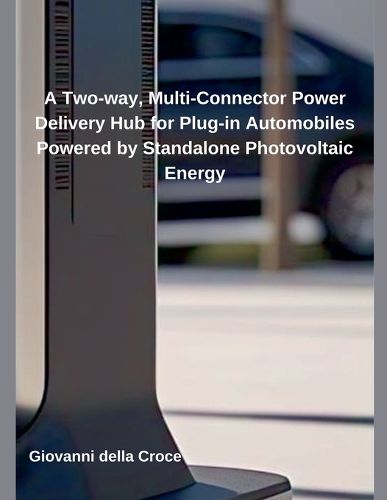Readings Newsletter
Become a Readings Member to make your shopping experience even easier.
Sign in or sign up for free!
You’re not far away from qualifying for FREE standard shipping within Australia
You’ve qualified for FREE standard shipping within Australia
The cart is loading…






The surge in Electric Vehicle (EV) adoption is expected to see a significant uptick, as indicated by various studies and assessments conducted by transportation and energy experts. Power system operators, influenced by environmental objectives (Urbanelli, et al 2018), are implementing policies to support this shift. Technological advancements play a pivotal role in promoting EV proliferation. The latest battery technologies enable compact units with increased travel duration and coverage. Standardization of connectors enhances interchangeability at charging stations, and more robust plug systems minimize wait times. Despite intelligent EV controls optimizing the charging process for battery preservation, the electric grid operator is primarily concerned with managing EV charging to mitigate the adverse effects of high-demand spikes at specific locations and time intervals. Consequently, while smart charging allows EVs and the power infrastructure to communicate better, the concept has acquired a lot of support (Abousleiman et al 2015; Moghaddam et al 2018). The function of the EV aggregator is to effectively impact the power grid system (Gonzalez Vaya et al 2019).
$9.00 standard shipping within Australia
FREE standard shipping within Australia for orders over $100.00
Express & International shipping calculated at checkout
The surge in Electric Vehicle (EV) adoption is expected to see a significant uptick, as indicated by various studies and assessments conducted by transportation and energy experts. Power system operators, influenced by environmental objectives (Urbanelli, et al 2018), are implementing policies to support this shift. Technological advancements play a pivotal role in promoting EV proliferation. The latest battery technologies enable compact units with increased travel duration and coverage. Standardization of connectors enhances interchangeability at charging stations, and more robust plug systems minimize wait times. Despite intelligent EV controls optimizing the charging process for battery preservation, the electric grid operator is primarily concerned with managing EV charging to mitigate the adverse effects of high-demand spikes at specific locations and time intervals. Consequently, while smart charging allows EVs and the power infrastructure to communicate better, the concept has acquired a lot of support (Abousleiman et al 2015; Moghaddam et al 2018). The function of the EV aggregator is to effectively impact the power grid system (Gonzalez Vaya et al 2019).